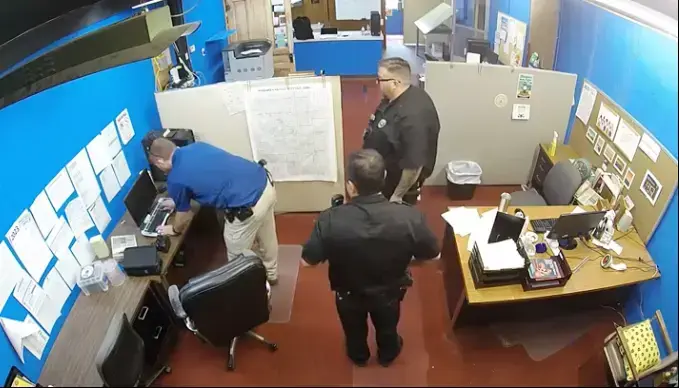What a newsroom police raid teaches us about encrypting our devices
What a newsroom police raid teaches us about encrypting our devices

What a newsroom police raid teaches us about encrypting our devices

Summary
- The Marion County Record newsroom in Kansas was raided by police, who seized two cellphones, four computers, a backup hard drive, and reporting materials.
- A computer seized was most likely unencrypted. Law enforcement officials hope that devices seized during a raid are unencrypted, as this makes them easier to examine.
- Modern iPhones and Android phones are encrypted by default, but older devices may not be.
- Desktop computers typically do not have encryption enabled by default, so it is important to turn this on manually.
- Use strong random passwords and keep them in a password manager.
- During the raid, police seized a single backup hard drive. It is important to have multiple backups of your data in case one is lost or stolen.
- You can encrypt USB storage devices using BitLocker To Go on Windows, or Disk Utility on macOS.
- All major desktop operating systems support Veracrypt, which can be used to encrypt entire drives.
Main Take-aways
- Encrypt your devices, drives, and USBs.
- Use strong random passwords and password manager.
- Have multiple backups.